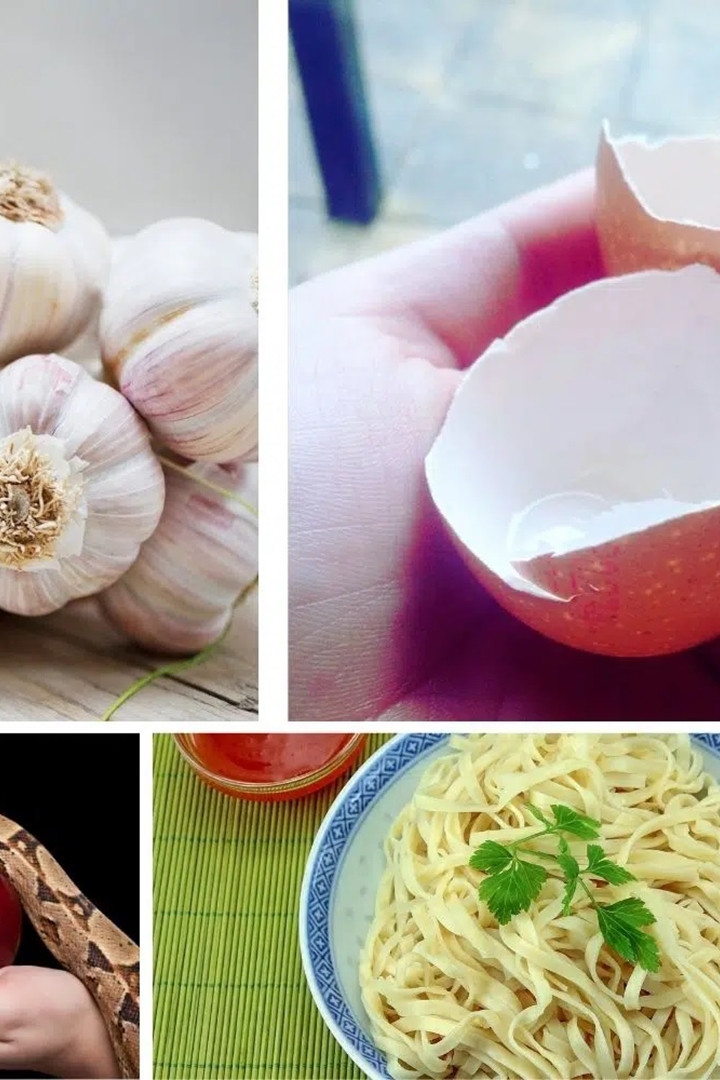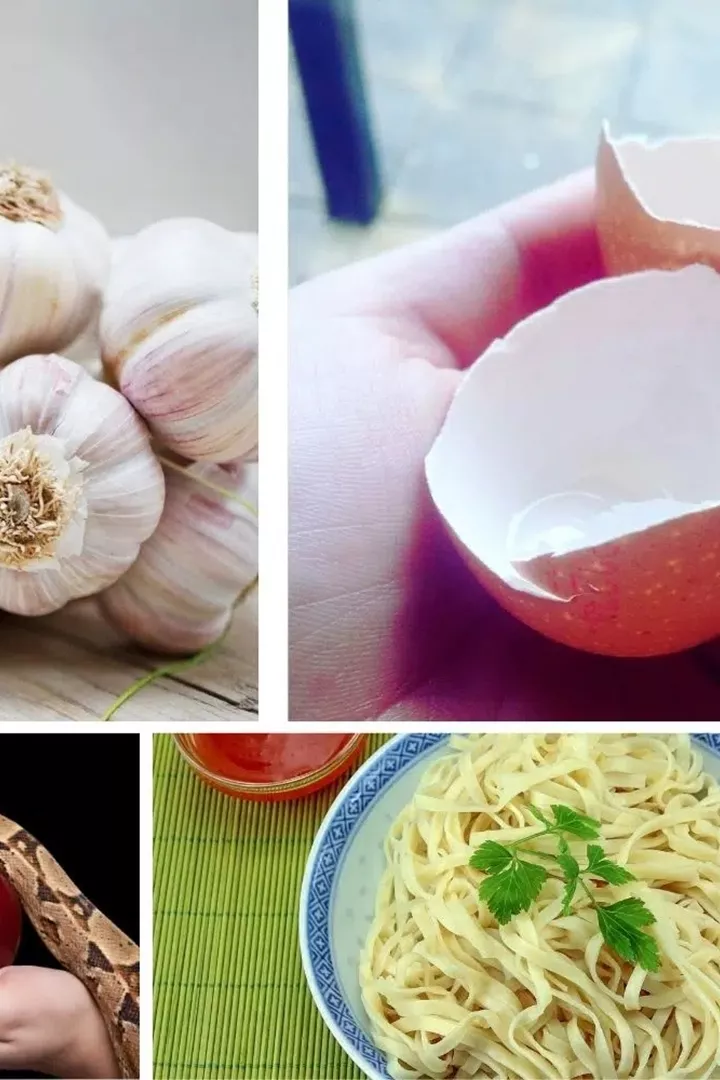

13 Cursed Foods and Food-Related Superstitions
from Bad Apples to Spilling the Tea


Apples: Forbidden Fruit or Harbingers of Love?
Europe and Ancient Rome


Take Financial Advice from the Bubbles in Your Coffee
Finland & Iceland


‘Toss the Rice’ to Wish Luck upon Newly Wed Couples
From the Celtic Times
Throw Salt over Your Left Shoulder
The Longer, the Better: Never Cut Your Noodles
China
Keeping the Devil Away from Your Bread
Beware of Witches Sailing on Eggshells
Ireland, USA, Norway,....
Eat Grapes on New Year’s Eve
Spain & Latin America
Garlic Keeps Vampires at Bay
Watch Next
Apples might have gotten a bad rap, but in reality, apple-related superstitions are a lot less scary. In the 19th Century, people would cut an apple in half and count the fully-formed seeds within it. The number of seeds was said to show how many children one would have.In Ancient Rome, people commonly used apples to find out whether the person they loved also loved them back. They would throw an apple seed into a fire while saying their loved one’s name out loud; if the apple seed popped in the fire, it meant that their love was returned. If the apple seed burned silently, then sadly, it meant that their love was unrequited.
In Finnish folklore, coffee bubbles coming towards you could signify that money and wealth will unexpectedly come into your life. However, if the bubbles look like they’re moving away from you, then it might be a sign that you’re about to lose money. We guess it depends on the way you look at it…Icelandic superstitions warn you to never drink your coffee while it’s hot, otherwise, you might…turn ugly. We’re not even joking. Icelandic people believe drinking iced coffee is your best bet if you want to become more attractive. So you might want to wait for your hot cup of java to cool off a bit before drinking, just in case.
n Celtic times, throwing rice at newlyweds was thought to bring wealth, luck, and fertility to new couples. It was not all about rice, though; different cultures used different grains to wish luck upon the bride and groom.But why don’t people use rice anymore? A while back, concern started to spread that the raw rice could be harmful to birds, which could fly in and pick up any leftover rice grains to eat. This theory remains up for debate; however, most couples prefer to go the eco-friendly route and use biodegradable confetti or dried flower petals instead.
Likely, many of us don’t even know why we’re doing this, but we know that if we don’t, bad luck will follow.
Unfortunately, it’s hard to trace back the exact origins of this salt-throwing superstition, but some believe that it goes back to Leonardo Da Vinci. In his painting The Last Supper, Judas can be seen knocking over the salt, which might be a subtle warning that a betrayal is on the horizon.
Spilling salt is perceived as a bad omen, which could bring evil forces into one’s life, so it’s good to ward off the devil by throwing salt in his eyes and blinding him. That’s because the devil is said to be lurking around behind your left shoulder, while your guardian angel protects you from the right shoulder.
Now, longevity is taken very seriously in Chinese culture. Taoism philosophy emphasizes the fact that without life, there is no meaning, and consequently having a long, prosperous life is the ultimate goal. There is even a Chinese God of Longevity, named Shou Xing, which means ‘Star of Longevity.’
One of the most well-known superstitions regarding bread lies in its bubbles. It’s normal to cut a freshly baked loaf of bread to find air bubbles in it, but if you notice a large hole in the middle, then that’s a bad omen and it means someone you love will die.
According to medieval folklore, you should never place a loaf of bread upside down on your counter or your plate. Doing so can trigger very bad juju; it can be a foreshadowing of a shipwreck, or can even be an invitation to bring evil forces into your home.
The peculiar superstition was noted in Reginald Scot’s Discoverie of Witchcraft, published in
- Here, he writes that witches ‘can go in and out at anger holes, and sail in an eggshell, a cockle or mussel shell, through and under the tempestuous seas’.
Though it might sound far-fetched, Irish immigrants sailing to America in the 1800s took this warning very seriously, to keep mean witches at bay. To this day, you will find sailors and ship crews crushing their eggshells after a meal, so make sure you follow their lead, or else you might be blamed for bringing witches aboard.
However, if you’re more into Norse mythology, then cracking a double-yolk egg is a bad omen and a warning that a death is to take place in the family.
There’s a common superstition that eating 12 grapes on New Year’s will keep bad luck away in the coming year.
So, come 12 o’clock at next New Year’s Eve, eat one grape each time the clock chimes, one for each month of the coming year, to ward off the bad juju.
If you don’t finish all your grapes before the final chime, it was all for nothing and you need to prepare for a year of bad luck.
According to National Geographic historian Mark Jenkins, a rampant rabies outbreak in the Balkans in the 1700s might have kickstarted the whole vampire phenomenon.
Vampires, or strigoi, as they’re known in Romanian mythology, exhibit similar symptoms to animals and people infected with rabies: the ‘same snarling, slobbering look about them’, a tendency to bite other people, and a hypersensitive response to intense smells – including garlic.